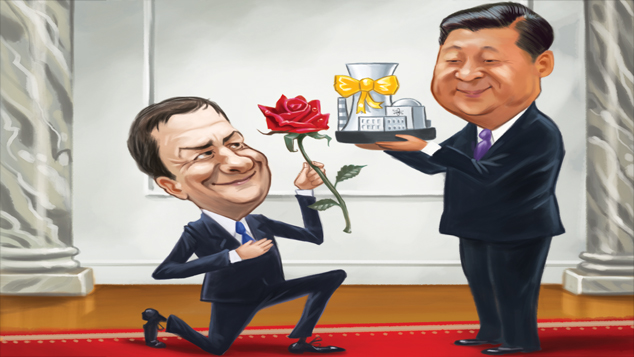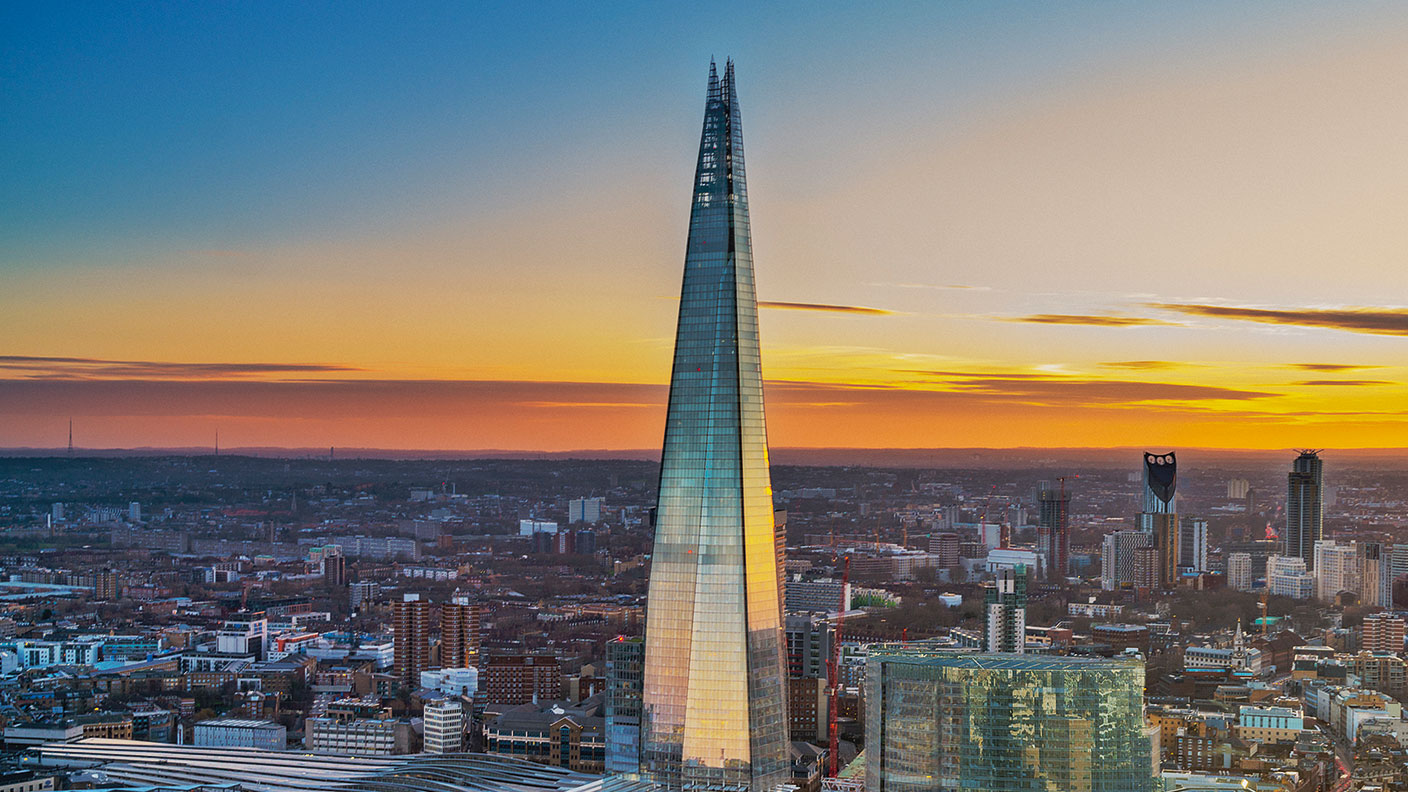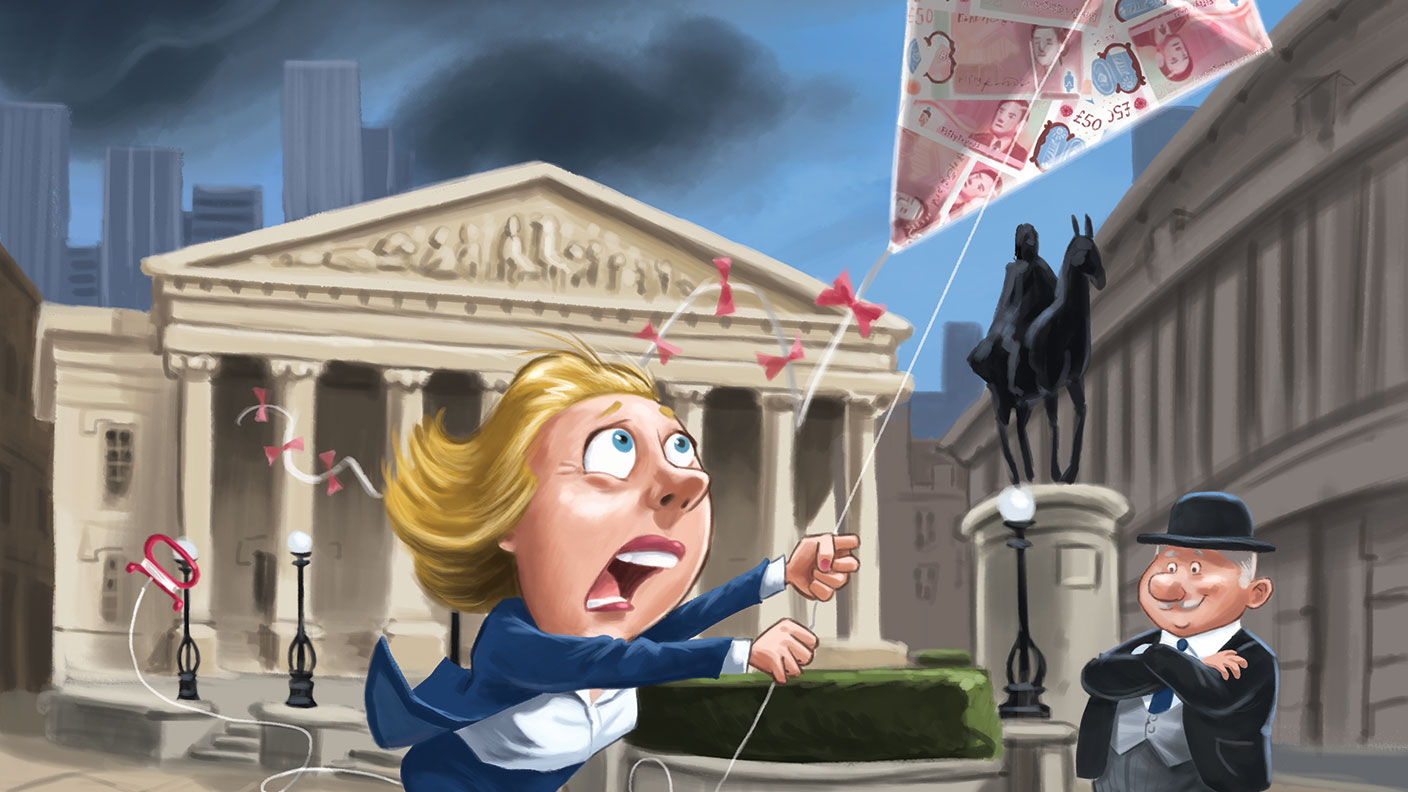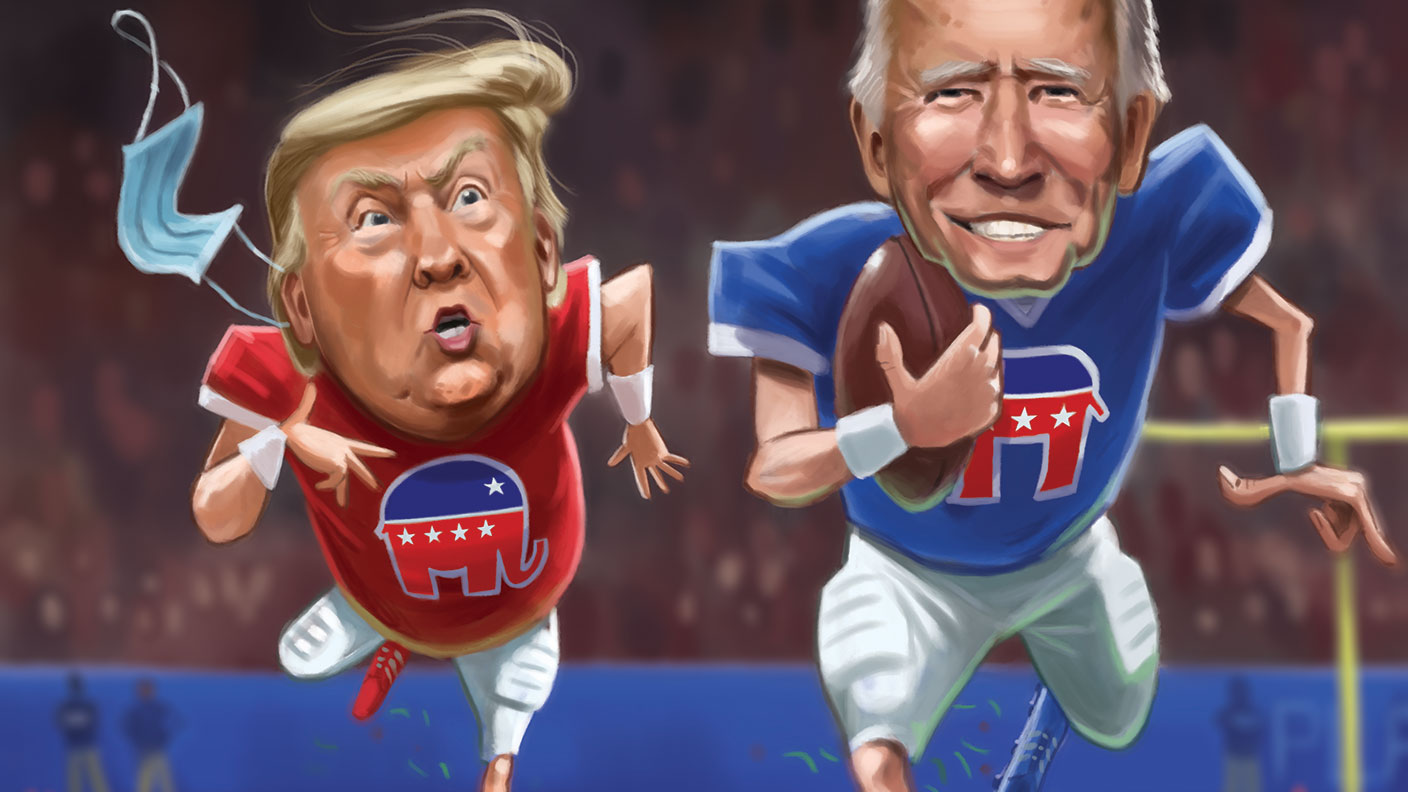A first date with China – but who will end up paying the bill?
Britain and China are making all the right noises. But as Rupert Foster explains, they're setting themselves up for disappointment.
Get the latest financial news, insights and expert analysis from our award-winning MoneyWeek team, to help you understand what really matters when it comes to your finances.
You are now subscribed
Your newsletter sign-up was successful
Want to add more newsletters?

Twice daily
MoneyWeek
Get the latest financial news, insights and expert analysis from our award-winning MoneyWeek team, to help you understand what really matters when it comes to your finances.

Four times a week
Look After My Bills
Sign up to our free money-saving newsletter, filled with the latest news and expert advice to help you find the best tips and deals for managing your bills. Start saving today!

I recently discovered First Dates, a TV programme where two carefully chosen, like-minded individuals are sent to a restaurant to see if they hit it off. It is a step up from most reality TV, because the producers understand that a near-miss is more interesting than a car crash waiting to happen.
Seeing how couples who are well matched try to figure each other out, decide if there's potential in taking the next step, and whether there just might be a long-term future together, is instructive not just about the lucky (or unlucky) couple, but about human nature. Almost always any problems are down to different expectations about the future, and to differing experiences drawn from the past.
Something similar is going on this week in London, with Xi Jinping's visit to the UK. In fact, this is a second date, following George Osborne's trip to Beijing, Shanghai, Sichuan and the fast-growing western province of Xinjiang. The chancellor gave a textbook statement of intent while in China. "I want Britain to be connected to every part of this vast nation." Relationships are not easy, he went on: "of course, there will be ups and downs in the road ahead, but by sticking together we can make this a golden era".
MoneyWeek
Subscribe to MoneyWeek today and get your first six magazine issues absolutely FREE

Sign up to Money Morning
Don't miss the latest investment and personal finances news, market analysis, plus money-saving tips with our free twice-daily newsletter
Don't miss the latest investment and personal finances news, market analysis, plus money-saving tips with our free twice-daily newsletter
It was a theme that Osborne found as catchy as Bryan Ferry did 39 years ago. "Let's stick together to grow our economies. Let's stick together to make Britain China's best partner in the West. Let's stick together and create a golden decade for both of our countries. Britain and China: we'll stick together."Statements like these usually can (and should) be taken with a pinch of salt.
But it is striking that Britain's posecaused a frisson of discontent on the other side of the Atlantic, where the chancellor's decision to become a founder member of the Asian Infrastructure Investment Bank (whose remit is to invest extensively across central Asia and elsewhere) had already been met with raised eyebrows. The US and Britain have a special bond, or so they thought in Washington; who knew this might be an open relationship?
Britain's invitation to China to take things further seems to be mirrored in the willingness of the latter to do just that. President Xi's visit, noted the Chinese ambassador to London, Liu Xiaoming, would herald a "golden time" in bilateral ties. This is "something of a golden era in our relationship", said David Cameron, in a neat echo of Osborne's dream of a "golden decade". Truly, observed President Xi in a statement to Reuters before he left for London, we shall "jointly usher in a golden time' for China-UK comprehensive strategic partnership". As well as sticking together, everything is golden.
As with First Dates, though, just because the body language looks right, does not mean things will go according to plan. For those watching carefully, there are tell-tale signs that there may be a twist in the tale. The problem, of course, is that mismatch of expectation. For Britain, China is a knight in shining armour, providing funding for a nuclear power station and other large-scale projects, and raising living standards here.
In return, China can benefit from the UK's expertise in financial services with PwC, KPMG, Deloitte and EY singled out as leaders in the field, along with HSBCand Standard Chartered mentionednot because of their threats to relocate from London, presumably, but because RBS, Lloyds and Barclays are still toxic in the wake of seemingly never-ending scandal. "Brilliant shows like Downton Abbey, Sherlock and James Bond" would be of interest to Chinese viewers, Osborne had said in Shanghai. It was all good for both sides: "a win-win for Britain and China".
But while audiences in Shanghai may be charmed by the travails of Lord Grantham, the genius of our finest detective and the sang-froid of our best agent, it is another message that is being filtered through more strongly to those in China one that suggests the date may not be on its golden tracks after all. For while the talk here is of partnerships, things look rather different from the East.
A recent press release put out by Xinhua, the state news organisation, provided a withering assessment of what Britain has to offer and of what it needs. "Britain's infrastructure is in bad need of repair and construction. The nation needs to build new roads, runways and railways, increase airport capacity and secure energy supply." Nothing in the UK works. While China has expertise in building high-speed railways and nuclear facilities, and developing water treatment plants and green technologies, Britain has fallen into decline. China is holding out the hand of friendship to help bring "Britain's ageing and over-utilised infrastructure up to an international standard".
Britain offers opportunities for China's government, for Chinese investors and for Chinese businesses. As everyone knows who's been on a date, the question eventually comes up as to who gets to pay. That gets tricky when one side is after cheap money and the other after good returns (and more besides).
Much has been made in recent days about the significance of Xi Jinping's visit and the pomp and ceremony that will greet a man described by his school teacher as an earnest and elaborately polite boy. With the second-biggest economy in the world, China is a date worth taking seriously. Whether it's something that will last or end in tears is another matter.
Peter Frankopan is the author ofThe Silk Roads: A New History of the World (Bloomsbury, £30).
Get the latest financial news, insights and expert analysis from our award-winning MoneyWeek team, to help you understand what really matters when it comes to your finances.
Dr Peter Frankopan is director of the Centre for Byzantine Research at Oxford University, and author of The First Crusade: The Call from the East, published by Bodley Head (£6.99).
-
 ISA fund and trust picks for every type of investor – which could work for you?
ISA fund and trust picks for every type of investor – which could work for you?Whether you’re an ISA investor seeking reliable returns, looking to add a bit more risk to your portfolio or are new to investing, MoneyWeek asked the experts for funds and investment trusts you could consider in 2026
-
 The most popular fund sectors of 2025 as investor outflows continue
The most popular fund sectors of 2025 as investor outflows continueIt was another difficult year for fund inflows but there are signs that investors are returning to the financial markets
-
 Governments will sink in a world drowning in debt
Governments will sink in a world drowning in debtCover Story Rising interest rates and soaring inflation will leave many governments with unsustainable debts. Get set for a wave of sovereign defaults, says Jonathan Compton.
-
 Why Australia’s luck is set to run out
Why Australia’s luck is set to run outCover Story A low-quality election campaign in Australia has produced a government with no clear strategy. That’s bad news in an increasingly difficult geopolitical environment, says Philip Pilkington
-
 Why new technology is the future of the construction industry
Why new technology is the future of the construction industryCover Story The construction industry faces many challenges. New technologies from augmented reality and digitisation to exoskeletons and robotics can help solve them. Matthew Partridge reports.
-
 UBI which was once unthinkable is being rolled out around the world. What's going on?
UBI which was once unthinkable is being rolled out around the world. What's going on?Cover Story Universal basic income, the idea that everyone should be paid a liveable income by the state, no strings attached, was once for the birds. Now it seems it’s on the brink of being rolled out, says Stuart Watkins.
-
 Inflation is here to stay: it’s time to protect your portfolio
Inflation is here to stay: it’s time to protect your portfolioCover Story Unlike in 2008, widespread money printing and government spending are pushing up prices. Central banks can’t raise interest rates because the world can’t afford it, says John Stepek. Here’s what happens next
-
 Will Biden’s stimulus package fuel global inflation – and how can you protect your wealth?
Will Biden’s stimulus package fuel global inflation – and how can you protect your wealth?Cover Story Joe Biden’s latest stimulus package threatens to fuel inflation around the globe. What should investors do?
-
 What the race for the White House means for your money
What the race for the White House means for your moneyCover Story American voters are about to decide whether Donald Trump or Joe Biden will take the oath of office on 20 January. Matthew Partridge explains how various election scenarios could affect your portfolio.
-
 What’s worse: monopoly power or government intervention?
What’s worse: monopoly power or government intervention?Cover Story Politicians of all stripes increasingly agree with Karl Marx on one point – that monopolies are an inevitable consequence of free-market capitalism, and must be broken up. Are they right? Stuart Watkins isn’t so sure.